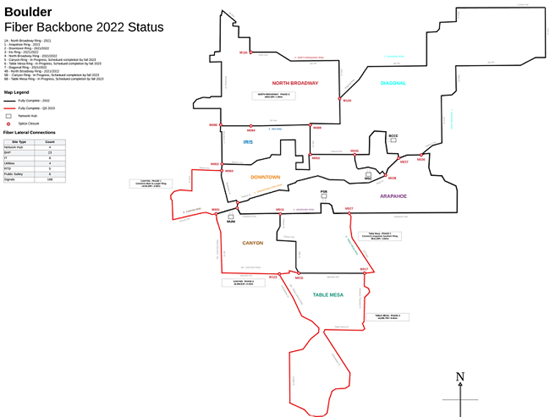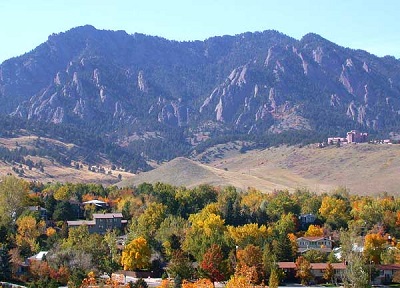
Fast, affordable Internet access for all.

Boulder, Colorado officials have issued a new request for proposal (RFP) seeking partners for their ongoing quest to deliver affordable fiber to the city of 104,000.
According to an announcement by Boulder leaders, the city is offering potential partners a long-term lease of city-owned dark-fiber backbone infrastructure and a right of way agreement for the construction and operation of a network delivering Internet service offering 1 Gbps or more to all Boulder homes and businesses. Responses are due by March 1.
When we last checked in with Boulder in April of last year, the city was putting the finishing touches on a $20 million, 65-mile dark fiber backbone, funded by the competitive sale of its 2018 Broadband Taxable Certificates of Participation (COPs). The competitive sale was used to ensure that Boulder could get the lowest interest rates possible in financing the construction of the backbone.

While the process was technically started back in 2018, and then delayed by the pandemic, city officials remained committed to moving the project forward.
“What we are trying to do in Boulder – if we can find the right partner or partners – is about creating more competition; increase the competitive marketplace locally,” project manager and independent consultant Tim Scott told ILSR last year.
Like so many U.S. communities, Boulder sees limited competition between the local cable company (Comcast) and the local phone company (Centurylink/Lumen) resulting in slow speeds, spotty coverage, high prices, and substandard customer service.
“Since 2018, the city has been working to build the necessary ‘fiber-backbone’ infrastructure needed to deliver high-quality fiber-based internet service,” officials state. “With the backbone construction nearing completion, this solicitation moves the city into its final band of work to ensure that all members of the community have access to affordable broadband service.”
Unlike many Colorado communities, Boulder decided against building a fully municipally owned last mile network in favor of a public-private partnership. As ILSR has explored, while PPPs may lower the up front cost and logistical burden of construction, municipalities often don’t own the finished network, and may not have full input on the network’s future trajectory or pricing.

While a 2018 city survey found that 90 percent of local residents supported the idea of pursuing a municipal broadband approach, after a Boulder City Council study session last August, city officials ultimately voted in October to have a private company build and own the finished network.
An August memo by the city council estimated that a fully municipally owned citywide fiber network would have cost the city roughly $290 million, effectively doubling the city’s existing debt load. The memo recommended that a PPP would be the “most feasible and lowest risk approach,” and that leasing the backbone to a third-party provider would incur no additional costs to taxpayers.
Numerous Colorado communities (from Longmont to Loveland) have seen success with municipal broadband, bolstered by voters’ recent decision to eliminate a state law, lobbied for by regional monopolies, that greatly restricted the financing and construction of community-owned broadband networks in the Centennial state.
Now, with the Boulder project moving, Colorado continues to distinguish itself as a community broadband-friendly state.
